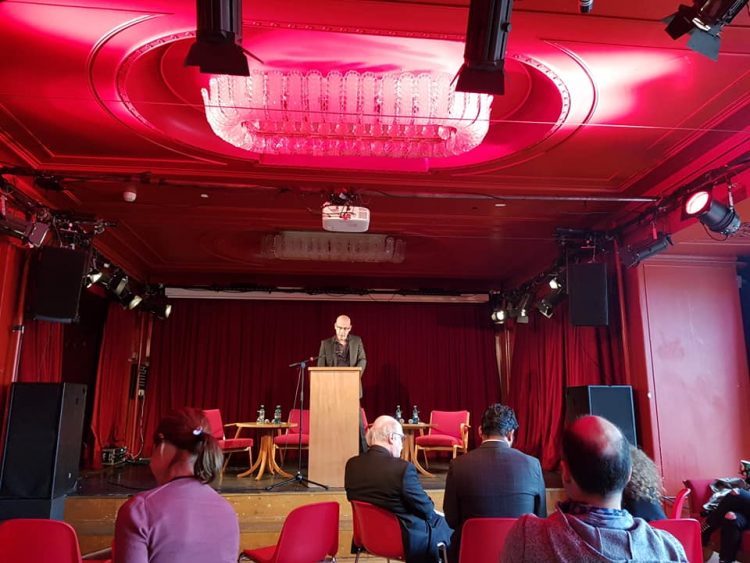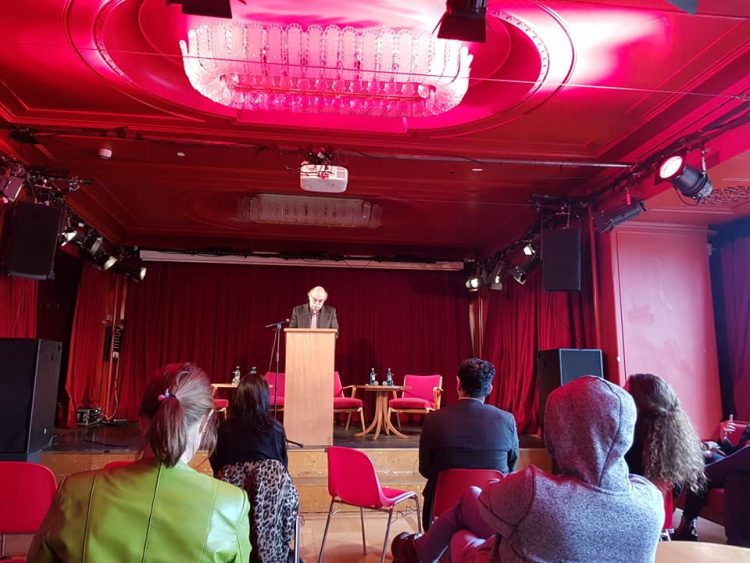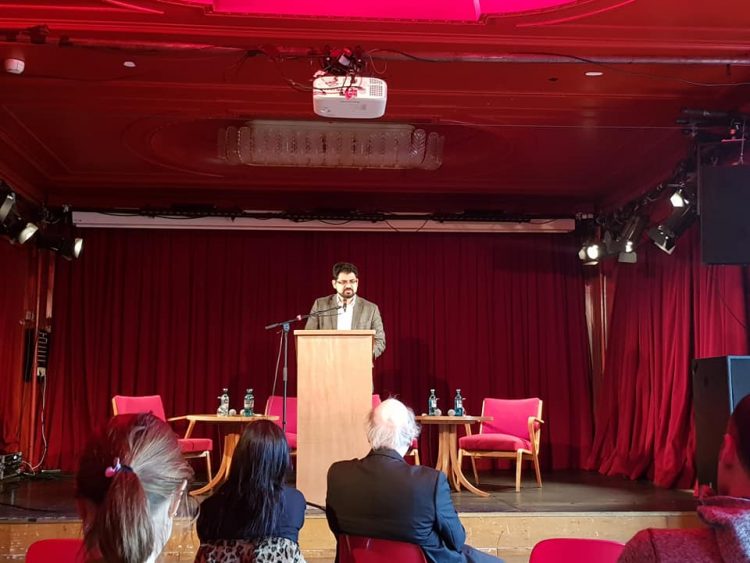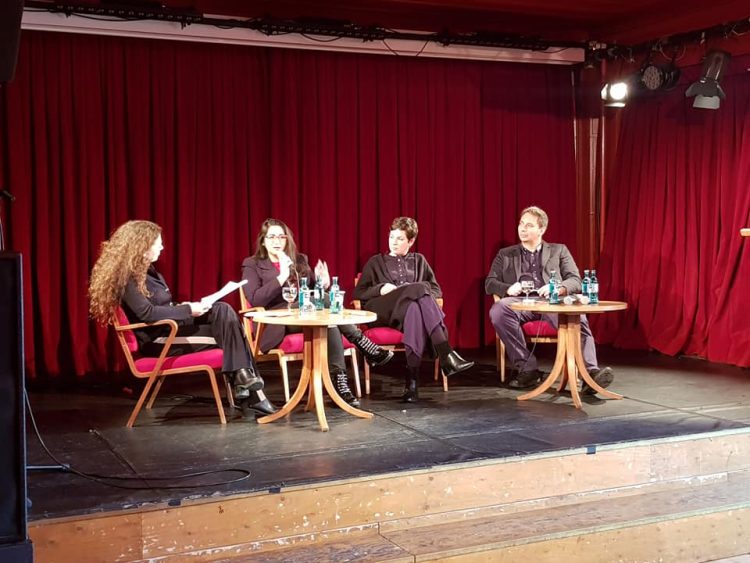Diaspora Europe: “Opferkonkurrenz, Opferallianz?” (1. March)
Diaspora Europa: Opferkonkurrenz, Opferallianz?
March 1st, 2020
On the occasion of the 75th anniversary of the end of the Second World War, the European Roma Institute for Arts and Culture, Volksbühne and journalist Shelly Kupferberg curated the event-series Diaspora Europe, bringing together Jewish and Roma/Sinti communities to explore the cultural and political dimensions of diaspora belonging in contemporary Europe. What stereotypes and prejudices still run through the history of both minorities today? What discourses of reappraisal have taken place since the end of the Second World War? How have they as diaspora communities shaped our understanding of today’s Europe?
The event-series opened with a discussion on Sunday, March 1st 2020 at 11a.m. in the Sternfoyer of Volksbühne
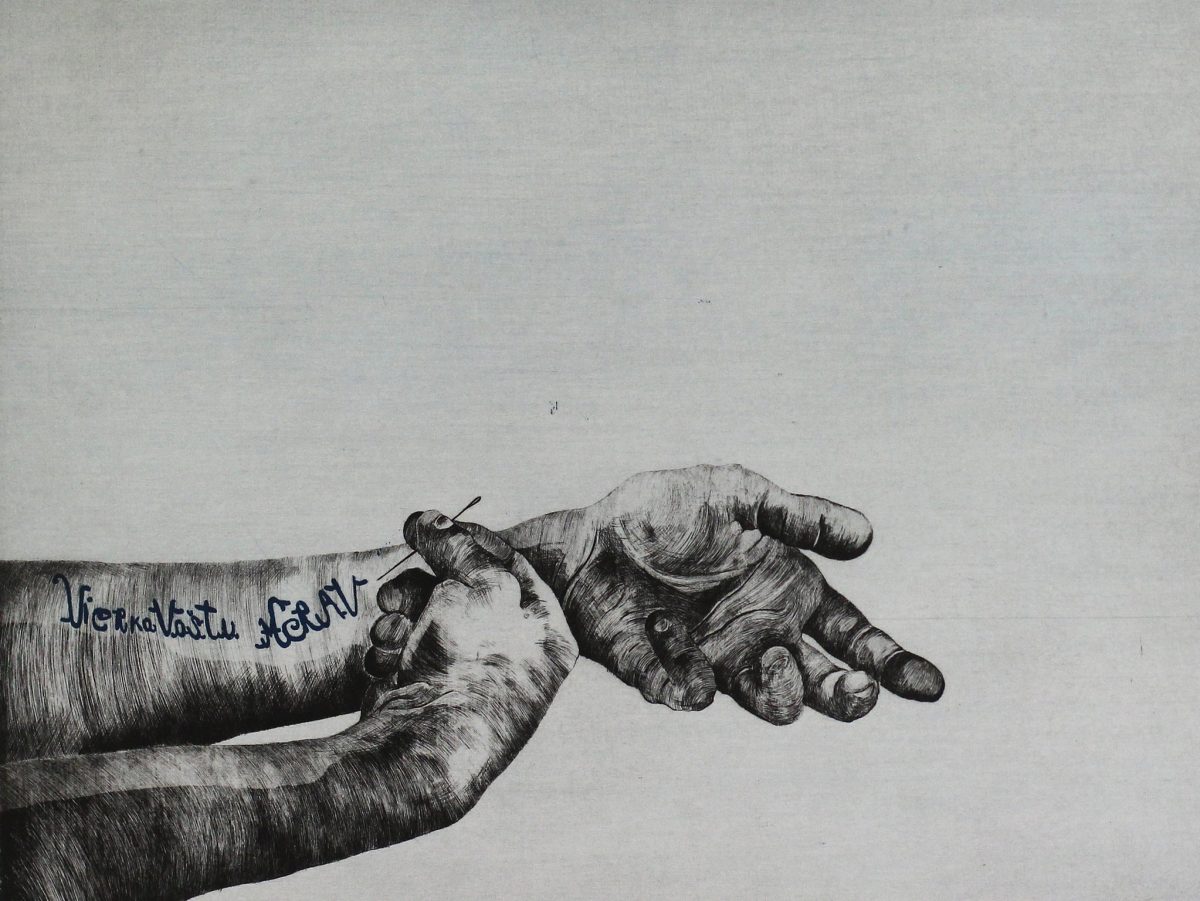
Robert Gabris: „Vierka Vastu Merav“ (Vierka Ich Sterbe für Dich) 70X50 cm, Kupfertisch auf Druckpaper, Print, Wien/UDINE, 2014. Courtesy by Artist
Program:
Keynotes by Emran Elmazi and Andreas Nachama
Discussion with Gilda Horvath, Lea Wohl von Haselberg and André Raatzsch moderated by Shelly Kupferberg
For more information about the event and the panelists, please click here
About Diaspora Europe
On the occasion of the anniversary of the end of WW II. Volksbühne presented a program series entitled Diaspora Europe. This Program was the gathering and event series of Jewish and Roma/Sinti communities to explore the politics and poetics of diaspora belonging within contemporary Europe.
Diaspora Europe encapsulated diverse forms and practiced developed by Jewish and Roma/Sinti ordinary citizens, public figures, scholars, artists and creatives to contemplate and employ the idea on how to transcend national boundaries, creating a mutually accessible, translatable, and inspirational European culture that invited participation.
The program series employed intimate and public discussions, the writing together of current discourses, deploying images, artworks, events and objects in the Volksbühne to unveil Jewish and Roma/Sinti history and contemporary reality as a form of constant adaptation, realignment, re-calibration and re-invention.
The initiative presented people, works and voices that unfold the story of the contributions by a multitude of diaspora communities to our understanding and imagination of our contemporary Europe. Together the Jewish and the Sinti and Roma invited you to Volksbühne to challenge hegemonic national representations, and to join to take pride and shape a horizontal, polyphonic and dynamic European cultural paradigm offering new perspectives for the future.
